Conclusion: Japan’s Economic Future
For almost 400 years, Japan has enjoyed a national economy that compared favorably with most of the world's nations. However, the post–World War II years were unprecedented as the archipelago nation became the world's second-strongest economic power. Readers of this chapter now understand that despite Japan's continuing high level of affluence, the nation faces a […]
The Two-Tiered Economy
One of the most distinct characteristics of the Japanese economy when it is compared to the economies of most developed nations is the high productivity of large multinational corporations and a few internationally competitive retail and wholesale distributors and the relatively mediocre to poor productivity of those manufacturers that serve primarily the domestic market as […]
Japan Becomes a World Economic Power: 1945–1973
Despite the experience and knowledge of its people, Japan was a devastated nation at the end of World War II. Millions of Japanese were without the basic necessities of life. Approximately one-fourth of all Japanese homes, as well as a high proportion of factories and shops, had been destroyed by the war. Japan was also […]
Economic Systems: The Roots of Success (1600–1868)
Even though Japan's spectacular economic rise did not occur until the three decades after World War II, the foundations for the so-called economic miracle were laid during the Tokugawa era (1600–1868). Although technologically behind parts of Western Europe and the United States that were industrializing and had more advanced technology, the Tokugawa economy was certainly not […]
Economy
Jamaica is classified as a less developed country (LDC), as is true of countries throughout the Caribbean and elsewhere in Latin America. The nation faces many problems that hinder economic growth. It also has many advantages that, if properly developed, can boost development. IS JAMAICA A WEALTHY COUNTRY? Gross domestic product (GDP) is one of […]
Economy
Chile has one the world's best performing economies. A measure of a country's economic performance is the Gross Domestic Product (GDP). The GDP is the value of all goods and services produced by a country. From 1990 to 2000, Chile's GDP grew 5.2 percent annually. This was the highest rate of GDP growth among all […]
Cuba’s Economy
The Castro government transformed the Cuban economy from capitalism to Marxist-Leninist Socialism. The main element of Marxist-Leninist Socialism is the governments “nationalization of all means of production.” This phrase means that the government takes over ownership of all farms, factories, warehouses, railroads, banks, and so on. The government also sets all prices, wages, and salaries […]
The Dominican Republic’s Economy
country's economy is the engine that fuels its daily life and determines the well-being of its citizens. Whether it's providing transportation systems or jobs and consumer products or public services, a country's economy has a significant influence on the daily activities of citizens and is the lifeblood of a country. Thus, the health of the […]
The Government and the Economy
NEW ZEALAND'S CONSTITUTION New Zealand's constitutional history can be traced back to 1840. Under the Treaty of Waitangi, the Maori people exchanged their sovereignty for the guarantees of the treaty and New Zealand became a British colony. New Zealand is today an independent state, a monarchy with a parliamentary government. Queen Elizabeth II has the […]
Poland’s Economy
The collapse of the Berlin Wall in 1989 and the subsequent changes that swept Eastern Europe were seen as a very positive transition for Poland. The country was in position to open its economic system and follow the rules of a market economy. Previously, it had labored under a politically manipulated, centrally planned economy. Poland […]
Ireland’s Economy
Fado, fado, Ireland's economy was at the simplest and most basic level of development. The ancient Irish hunted the land, fished the lakes and streams, and foraged the forests in order to find the foods they needed to survive. Interestingly, they never turned to the sea as a major source of food. A huntinggathering (and […]
Economy of Iceland
Iceland's Scandinavian-type economy is basically capitalistic and similar to that of the United States and Canada. In addition, an extensive modern welfare system is in place. This covers the medical needs of the Icelandic people, with extensive medical, dental, and eye-care benefits. Free education (from preschool to the university level), guaranteed retirement pay, and high […]
Germany’s Economy
Typical of modern industrialized countries, Germany has fewer than 3 percent of its workforce engaged in extractive industries. The North Sea has been a traditional fishing ground with herring being the most important catch. However, over-fishing has resulted in a decline in the fishing industry, and Germany now relies on imported fish to meet its […]
Croatia: Government and Economy
Since 1990, when the one party socialist system was eliminated, Croatia has existed as a parliamentary democracy. A national constitution was approved in December 1990, and independence was proclaimed on June 25, 1991. The country's flag has horizontal bands of red, white, and blue upon which appears the Croatian coat of arms that includes symbols […]
Belgium’s Economy
Belgium is located in one of the most industrialized areas of Europe. Because of its industrial strength— and hence, employment opportunities—it is also one of the most densely populated. The per capita gross national product (GNP) for the Flemish and Central regions ranks among the highest in the entire European Union (EU); the average figure […]
Canada: Economy
For seven consecutive years—from 1994 to 2000—Canada held the distinction of being the best country in the world in which to live. The annual ranking by the United Nations assesses such things as life expectancy, adult literacy, and economic prosperity. Canada's life expectancy is 79 years, with a literacy rate of 97 percent. These high […]
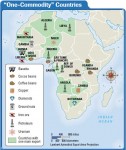
Africa: Economic Development
A HUMAN PERSPECTIVE Mauwa Funidi wonders about the future of her country, the Democratic Republic of the Congo, as she looks around the rundown university library where she works. She has not been paid her salary of 12 dollars per month in many months. Classes at the university have been suspended because of a lack […]
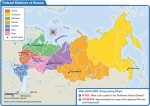
Russia and the Republics: The Struggle for Economic Reform
A HUMAN PERSPECTIVE Russians have faced many hardships since the breakup of the Soviet Union. But few have been as difficult to overcome as the collapse of the Soviet command economy. After the Soviet Union collapsed in 1991, the region's people began to participate in a capitalist system. One Russian bitterly summed up the sudden […]
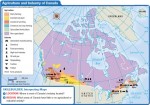
Economy and Culture of Canada
A HUMAN PERSPECTIVE The fur trade was a major economic activity in early Canada. It began in the 16th century, when Canada's Native American peoples, now known as the First Nations, started trading with European fishermen along the northern Atlantic coast. A brisk trade soon developed, and trappers and traders poured into Canada. They came […]
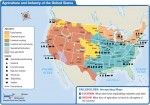
Economy and Culture of the United States
A HUMAN PERSPECTIVE The average American worker in 1790 was a self-employed farmer. The farmer spent each work day, sunrise to sunset, in backbreaking labor in the field. Most of the crops and livestock raised were consumed by the farm family. In the 1890s, the average American worker labored in a manufacturing or service industry, […]

Economic Geography
A HUMAN PERSPECTIVE One of the most valuable of natural resources—petroleum—wasn't always used as a source of energy. Until the world began to run on gasoline-powered machinery, oil was used for a variety of purposes. Native Americans, for instance, used “rock oil” for medicinal purposes. Egyptians used oil as a dressing for wounds. Ancient Persians […]
The United States’ Economy
With an annual gross national product (GNP) of about $13 trillion in 2006, the United States is the world's largest and most powerful economy by a wide margin. By any measure, the country is an economic giant. In fact, it is responsible for about 30 percent of all of the world's economic production and services! To place the country's economic […]
France’s Economy and Communications
France ranks fourth among countries in terms of its economy, with a gross domestic product (GDP) of around $1.5 trillion. Per-capita purchasing power is the equivalent of about U.S. $24,500 per year (compared with the U.S.'s $34,100 in 2002). AGRICULTURE France is an agriculturally favored country—60% of its land is arable and over half is cultivated—and produces prodigious quantities of […]
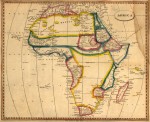
Economic History
Alack of written sources makes it difficult to trace the early economic history of much of the African continent, especially sub-Saharan Africa. What is clear is that Africans in precolonial times had basic economic activities that provided them with the things they needed to survive. At the same time, however, many factors limited the kind of intensive economic development […]
Development, Economic and Social
In general, development refers to a process by which countries use their natural and human resources to improve the economy and the lives of their people. Many experts also study development in terms of its outcome—the results that are achieved through economic, political, and social programs. A complex concept, development includes economic measures such as income and economic production, political measures […]
Large Corporations, Political Regulation, Fordism, Mass Production, and Economies of Scale
In the last quarter of the nineteenth-century, the control and direction of large areas of industry came increasingly into the hands of banks and financiers. This era has thus come to be dominated by finance capitalism, characterized by the growth of large corporations – some of them developing into mammoth industrial cartels. The development of increasingly complex systems of […]
Measuring Business Services in National Economies
The ongoing structural realignment being experienced by economies makes it impossible for governments to ensure that their national economic statistics are an adequate reflection of economic activity. This has always been the case. The UK Standard Industrial Classification of Economic Activity (SIC) is a measure of economic activity, but essentially it is a backward looking measure; the SIC cannot be constantly […]
‘Nature’, the Economy, and Changing Research Initiatives
Post war governments utilized the Arctic as nuclear laboratory, but a contrary ecological consciousness emerged amidst efforts of 'big science' to control nature. While the Soviets relocated Nenets to conduct tests on Novaya Zemlya, the US Atomic Energy Commission (AEC) tested bombs on Amchitka Island, Alaska. This then inspired the organization of Greenpeace. The AEC's peacetime efforts had included plans […]
Political-Economic Animal Geographies
Animal geographies that have utilized political economic analyses have mainly been found in rural and agricultural geographies. Such studies have at times focused on the development of certain intensive food production regimes as emblematic of current structures of capitalism. For example, studies have focused on chicken and hog intensive production systems in the USA, amongst other matters. Here, animals were always […]
Economic Geographies of the Sea
Finally, economic geographers as well are beginning to direct their attention to the ocean. Countless local and national economies are driven by the tourism sector and, within the tourism sector, a wide range of activities involve tourists embracing the ocean, whether from the shore, a ship, the surface, or beneath the waves. Economic gain is also constructed in the ocean […]
What Factors Make Up Agglomeration Economies?
Identifying and analyzing those advantages that may accrue to firms located in close juxtaposition to other similar and related firms, rather than being located in isolation, is one way to account for the agglomeration phenomenon. The concept of agglomeration economies (or localization economies) refers to these advantages. The basic understanding of this concept was in place already a century ago. Thus, Alfred […]
The Core Issue of Economic Geography
In the context of economic geography, agglomeration may refer to a concentration in space of some entity, or the process by which such a spatial formation is created. While the dictionary definitions signal that agglomeration is to be understood as an unsystematic, haphazard process, where some entities pile up together in space but are not really affected in any particular […]

economic geography
KNOWLEDGE OF ECONOMIC geography was first essentially descriptive, with a focus on the REGION and its economy, demography, and social characteristics. It represented the typical approach in research agenda in North America and Western Europe. The birth of economic geography dates from the age of European exploration, with an expansion in commercial geography from the […]